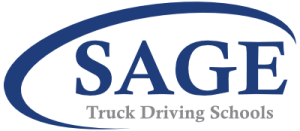The ELDT regulations were issued by the Federal Motor Carrier Safety Administration (FMCSA), which is part of the US DOT. The ELDT rules set the minimum Federal requirements for training that entry-level drivers must complete before being permitted to take certain commercial driver’s license (CDL) skills or knowledge tests on or after February 7, 2022.
ELDT applies to individuals applying to:
- Obtain a Class A CDL or Class B CDL for the first time;
- Upgrade an existing Class B CDL to a Class A CDL;
- Obtain a school bus (S), passenger (P), or hazardous materials (H) endorsement for the first time.
The ELDT requirements apply to individuals who obtain a commercial learner’s permit (CLP) on or after February 7, 2022 (as long as the CLP has not expired).
The ELDT regulations are not retroactive; individuals who were issued a CDL (or an S, P, or H endorsement) prior to February 7, 2022 are not required to complete training for the respective CDL or endorsement.
The FMCSA has established the Training Provider Registry (TPR), which has a searchable database of CDL training providers that have registered with FMCSA. Only CDL training providers listed on the TPR can provide ELDT CDL training.
There are no specific hours of training required for ELDT. Instead drivers must receive training in 30+ “theory” (knowledge) topics, and receive hands on driving “skills” training until the driver is “proficient” in skills, as determined by the training provider. Skills training includes things like vehicle inspection, backing maneuvers and road driving.
Upon completion of ELDT training, the training provider will upload completion information directly to FMCSA. The TPR will retain a record of which applicants for a CDL have completed the ELDT training. The student driver cannot provide ELDT training completion information to FMCSA or a CDL tester.
Drivers will not be able to take the CDL Class A or Class B test, or take the Hazmat knowledge test, until they have completed ELDT CDL training by an approved training provider. CDL Testers will check in an FMCSA computer system to confirm completion of ELDT training. If training has not been completed by a driver, the CDL test will not be administered to the driver.
Some states may have additional CDL training or testing requirements.
SAGE Truck Driving Schools are TPR-approved CDL training providers, and ProDriverU is an approved CDL theory training online platform.
For more information about the ELDT regulations, the Training Provider registry, and FAQs, visit https://tpr.fmcsa.dot.gov
How can individuals access the Training Provider Registry (TPR) to find approved CDL training providers, and is there a fee to use this service?
Individuals can access the Training Provider Registry (TPR) via the FMCSA’s official website at tpr.fmcsa.dot.gov. Access to the TPR is typically free for individuals looking to verify or find approved training providers. The TPR is designed to be a user-friendly, public resource to ensure transparency and accessibility of information regarding CDL training providers that meet federal standards.
What specific maneuvers or skills are prioritized during the hands-on driving skills training portion of the ELDT?
The specifics of the hands-on driving skills training can vary by training provider, but they generally cover a range of essential driving and operational skills. According to the FMCSA regulations, skills training often includes pre-trip vehicle inspections, basic vehicle control maneuvers, and on-road driving that encompasses a variety of conditions (e.g., highway, rural, and urban driving). Training also focuses on safety practices, including space and speed management, recognizing and responding to hazards, and emergency maneuvers.
How can a student verify that their ELDT completion record is accurately reflected in the system before scheduling their CDL test?
After a training provider uploads a student’s ELDT completion information to the FMCSA, the student’s record should be accessible through the Training Provider Registry. Although the original article does not detail the verification process, students typically would not directly access their records in the system. However, they should receive a certificate or confirmation from their training provider. If there are concerns about the accuracy of the record, the student or prospective employer can contact the training provider or the FMCSA for assistance. Before scheduling their CDL test, students should confirm with the testing facility or state DMV that their ELDT completion has been verified through the FMCSA system.

